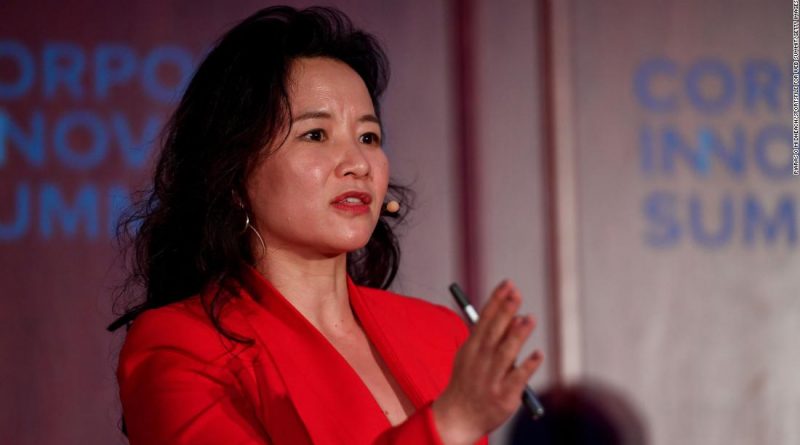Australian TV host set to stand trial in China for allegedly supplying state secrets overseas
Australian ambassador to China, Graham Fletcher, told media it was “deeply concerning, unsatisfactory and regrettable” he had been denied entry to the trial, which was due to start Thursday.
“We can have no confidence in the validity of a process which is conducted in secret,” he said, adding that Australia had no information about the charges or allegations against Cheng.
“That is part of the reason why we’re so concerned because we have no basis on which to understand why she’s been detained.”
Cases related to national security are typically tried behind closed doors in China.
Cheng has been in custody since August 2020, and observers have raised concerns over the secretive court process. Payne says Cheng has been allowed regular access to Australian consular officials, who last saw her on March 21.
The lack of transparency over the case and backdrop of deteriorating relations between China and Australia has prompted concerns that the case could be political.
“Even allowing for circumstances in which the case brought against her has some substance, it is just very difficult to believe that tensions between Australia and China haven’t in some way affected or factored into this case,” Collinson said.
“It may well be that the number of years in the sentence will be tailored to send some sort of political message,” she said. “(The verdict) will just fuel the already acute distrust that many Australians feel with respect to Beijing.”
The woman at the center of the case
Before her detention, Cheng had been working a business anchor on CGTN, the international arm of China’s state-owned broadcaster CCTV. Cheng previously worked for US financial news network CNBC, and in her spare time, she was active in the Australian community in Beijing.
In the months after Cheng was detained, her friends said they were in shock.
In a statement Wednesday, Cheng’s family said: “Her two children and elderly parents miss her immensely and sincerely hope to reunite with her as soon as possible.”
Why Cheng was detained
Analysts say the tense political climate between China and Australia appears to have played a part in Cheng’s detention and arrest.
China dubbed Morrison’s proposal “political manipulation,” and targeted Australia over trade, slapping products with tariffs and blocking acquisitions by Australian companies.
“There’s no transparency, the outside world has no idea what the person has actually done,” said Yaqiu Wang, senior researcher on China at Human Rights Watch, referring to Cheng. “The only thing we know is that this happened during the context of increased tension between the two countries — and the fact that the Chinese government has a history of leveraging, exploiting those cases for political purposes.”
“This all happened in the context of increased tensions between the West and China,” Wang said. “All people who are foreign nationals doing work in China can be used as leverage by the Chinese government for political purposes.”
What happens next
In the 19 months since Cheng was detained, Australia and China’s relations haven’t improved.
Australia has been taking a more “confrontational stance” when it comes to China, said Wang.
But Australia is heading into a national election, and while a change in government would unlikely see a policy shift on China, it could help clear the air, Collinson said.
“That might pave the way for — if not a reset — a blunting of this very sharp friction between the two countries.”
It’s not clear what, if any, a reset of bilateral relations would mean for Cheng, who remains isolated from her support networks and separated from her family.
“She has two young kids who she hasn’t seen in years now,” Collinson said. “It’s all well and good to talk at a high level about political tensions and the ramifications thereof, but in terms of its spillover, there are some very real consequences and heavy penalties that normal people have to pay.”
CNN’s Hannah Ritchie contributed reporting from Sydney. CNN’s Sophie Jeong contributed reporting from Hong Kong




